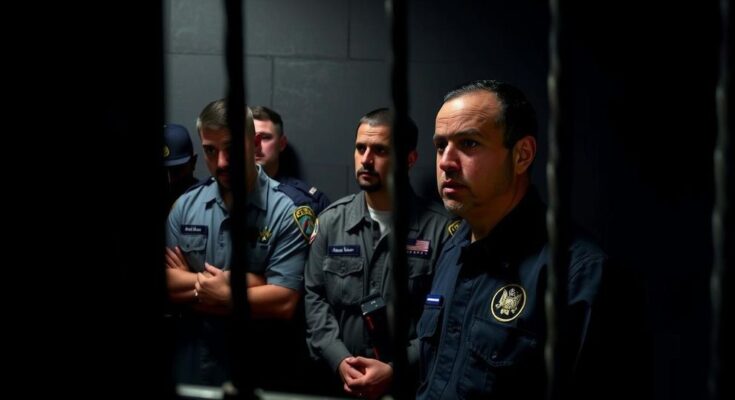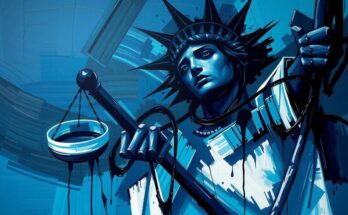A Baku court has prolonged the detention of Ruben Vardanyan, a notable leader from Artsakh, amid rising outcry over human rights violations. Human rights attorney Siranush Sahakyan characterized this extension as a glaring breach of international human rights standards, emphasizing the absence of judicial independence and transparency. The broader implications involve not just Vardanyan but other Armenian leaders facing similar judicial uncertainty, invoking calls for global intervention and justice.
In a notable legal development, a Baku court has extended the detention of Ruben Vardanyan, a key figure in the Armenians’ struggle over Nagorno-Karabakh. His hold since last September raises serious human rights concerns, igniting outrage among the global Armenian populace who deem the detention illegal. The court’s lack of clarity about the reasons for extending Vardanyan’s detention further clouds the issue, exacerbating fears around the legitimacy of the judicial proceedings. Siranush Sahakyan, a respected human rights lawyer, lambasted the decision, categorizing it as a stark contravention of international human rights norms. She asserted, “The continued detention of the former leaders of Artsakh… is a glaring violation of human rights standards.” According to her, the extension’s vagueness intensifies concerns about fairness in the ongoing process, which seems far from transparent. This case illustrates systematic issues within Azerbaijan’s judiciary as Sahakyan pointed out the absence of independence in its legal system, questioning the integrity of judicial reviews. “These detention reviews are conducted by a judiciary that lacks independence,” she emphasized, revealing the deeper violations that plague not just Vardanyan but many other detainees too. The plight of Vardanyan mirrors that of other Artsakh figures, with recent extensions of detention also imposed on Arkady Ghukasyan, Bako Sahakyan, and Arayik Harutyunyan—all pivotal leaders from Artsakh. Their legal statuses remain hazy while facing an uncertain future under the Azerbaijani judicial system, adding to the overarching climate of unrest and anxiety. The Armenian diaspora voices are rising against this perceived political persecution, prompting calls for urgent global attention. Sahakyan perceived the prosecution’s reassurances post-investigation completion as more about managing public image than facilitating any genuine judicial progression. As the legal chaos continues to unfold, Ruben Vardanyan’s case encapsulates tensions surrounding human rights violations, echoing wider concerns about political motivations behind these arrests. At this juncture, the resolution of these cases appears murky, leaving the global Armenian community yearning for justice and clarity.
The detentions of Armenian leaders in Azerbaijan, particularly in connection to the Nagorno-Karabakh conflict, have drawn international scrutiny and condemnation. Ruben Vardanyan, once a prominent political figure in Artsakh, has been symbolically placed at the center of this controversy as his prolonged detention poses significant questions regarding human rights standards and the fairness of judicial proceedings in Azerbaijan. The implications of these detentions extend beyond individual cases, reflecting broader geopolitical tensions and concerns about political repression. These events unfold in the backdrop of historical territorial disputes, national identity struggles, and the quest for autonomy by the Armenian population in Nagorno-Karabakh, painting a complex picture that resonates with themes of justice, sovereignty, and human rights in a conflicted region.
The continued detention of Ruben Vardanyan and other Artsakh leaders stands as a poignant reminder of the intersection between justice and political machinations in Azerbaijan. Siranush Sahakyan’s critique highlights fundamental violations of legal integrity and human rights principles. As the international community watches closely, the calls for accountability and clarity grow louder from the global Armenian community, urging a pursuit of justice amid a volatile judicial landscape. The outcome of these circumstances not only affects the detainees and their families but sends ripples through the broader narrative of human rights globally.
Original Source: horizonweekly.ca



